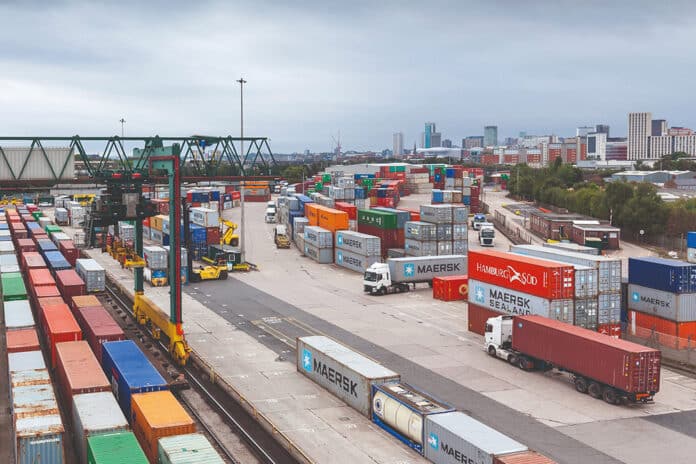- Rail Delivery Group is calling on government to introduce policies that will improve infrastructure and connectivity resulting in increased use of rail freight
- Rail industry says a modal shift from roads to rail will grow the economic and environmental benefits across the UK
- Rail freight already delivers £2.45 billion of economic benefits to the UK and removes the need for 7 million lorry journeys a year
Following the publication of the Williams-Shapps Plan for Rail, the Rail Delivery Group (RDG) is calling on government to boost the economy and the environment by adopting policies that will help shift freight from road to rail.
In its ‘Rail Freight: Building a stronger, greener future for Britain’ report, published today, RDG outlines a series of policies the government should support if it wants to eliminate congested roads and cities, support the levelling up agenda and achieve net zero carbon emissions by 2050.
Research published earlier this year by RDG showed that rail freight delivers £2.45 billion in economic and social benefits to the UK every year. In addition, each tonne of freight transported by rail produces 76% less carbon emissions compared to road transportation with one freight train replacing the equivalent of up to 110 lorries. Altogether, rail freight removes the need for 7 million lorry journeys a year.
To help shift more freight on to rail and off the roads, RDG is calling on the government to:
- Make the best use of capacity on the network, by allowing more freight to run on rail
- Upgrade Britain’s infrastructure to make it fit for the digital age, which can allow both freight and passenger trains to run more efficiently
- Work with the rail industry to incentivise businesses to switch their goods from road to rail
- Establish an efficient logistics sector which has hubs and terminals in the right places, with strong rail connectivity to help avoid a road-led recovery
- Commit to investing in the infrastructure required to decarbonise rail freight including a long-term programme of electrifying the railways
- Ensure that the future industry structure supports rail freight growth and unlock continued third-party investment that will allow rail freight operators to deliver greater long-term economic and environmental benefits
Robert Nisbet, Director of Nations and Regions for the Rail Delivery Group said: “Throughout the pandemic the railway have played a vital role in transporting goods and keeping supermarket shelves stocked. As we enter the recovery phase, our roads and cities are once again becoming congested.
“If government wants to realise its commitment of net zero in 2050 and grow the economy, it has to put in place the policies to incentivise the shift from roads to railways for both goods and people.”
Photo credit: Rail Delivery Group







































 0113 2082620
0113 2082620 info@railbusinessdaily.com
info@railbusinessdaily.com 15 Mariner Court, Wakefield WF4 3FL
15 Mariner Court, Wakefield WF4 3FL

